This biological safety cabinet class I features advanced design and technology to perform everyday applications safely and efficiently. The proprietary airflow design provides superior protection, superior ergonomics for a safe and comfortable environment, and superior energy efficiency for operational cost savings.
Biological Safety Cabinet Class I Features:
- In the event of a power failure, the memory function ensures data retention.
- HEPA filter and UV life indicators prompt timely replacement.
- UV lamp for sterilization purposes.
- Includes a temperature sensor for accurate temperature display during operation.
- Waterproof socket enhances convenience for small instruments in the operating area.
- Perforations on the back wall of the work zone minimize air turbulence and eliminate dead air corners.
Biological Safety Cabinet Class I Specifications:
| Model |
BSC-I-800 |
| External Size (WxDxH)(mm) |
710 x 680 x 1050 (Without Base Stand) |
| 710 x 680 x 1680 ( With Base Stand) |
| Internal Size (WxDxH)(mm) |
610x590x625 |
| Work Surface Height |
750mm |
| Control System |
Display |
Microprocessor controller with LCD display, display the operating status of each function |
| Alarm |
Audio and Visual alarm on filter and UV changing |
| Interlock |
Front sliding sash interlock with fan and UV lamp |
| Life Indicator |
HEPA filter and UV life indicators facilitate a timely replacement plan |
| Airflow System |
Airflow Velocity |
0.2~0.5m/s, Speed adjustable |
| Air filtration System |
HEPA Filter |
1 pcs, Efficiency: > 99.995% at particle size of 0.3μm |
| Cleanliness Grade |
ISO Class 5 (formerly Class 100) |
| Partial air circulation |
Perforations at the back wall of the work zone which are designed to eliminate air turbulence and the possibility of dead air corners in the work zone. |
| Cabinet Construction |
Main Body |
Electro-Galvanized steel with antimicrobial powder coating |
| Work Surface |
304 Stainless steel, an angled front, rounded work surface front edge |
| Front Window |
Manual sliding sash: 5 mm UV resistant tempered glass with counter-balance system and ergonomic handle |
| Side window |
5 mm UV resistant tempered glass |
| Electrical System |
UV Lamp |
8W×1 |
| With timing function from 0 to 999 minutes |
| Interlock with front sliding sash. |
| Emission of 253.7 nanometers for best sterilization effect. |
| LED Lamp |
8W×1 |
| Consumption |
160W (Not include socket loading power consumption) |
| Power Supply |
AC220V±10%, 50/60HZ; 110V±10%, 60Hz |
| Illumination |
≥500Lux |
| Sound Emission |
≤62dB(A) |
| Standard Accessory |
1. LED Lamp; 2. UV Lamp; 3. Waterproof Socket×1pcs |
| Optional Accessory |
1. Base stand; 2. Water Tap; 3. Gas Tap |
| Net Weight |
80kg (Without base stand), 130kg (With base stand) |
| Gross Weight |
115kg (Without base stand), 165kg (With base stand) |
| Shipping Size (W×D×H)(mm) |
920x855x1190 |
| Shipping Volume |
0.94m3 |
Advantages of Biological Safety Cabinet Class I:
- Audio and visual alarms signal filter and UV lamp life.
- The front sliding sash interlocks with the fan and UV lamp.
- UV-resistant tempered glass is used for the front sash and side windows.
- Independent capacitors for the host and sockets prevent current overload.
What are the uses of biosafety cabinet class I?
A biological safety cabinet (BSC) serves as a primary engineering safeguard, shielding personnel from biohazardous or infectious agents while also ensuring quality control of the material being handled by filtering both incoming and outgoing air.
Biological Safety Cabinet Class I airflow diagram:
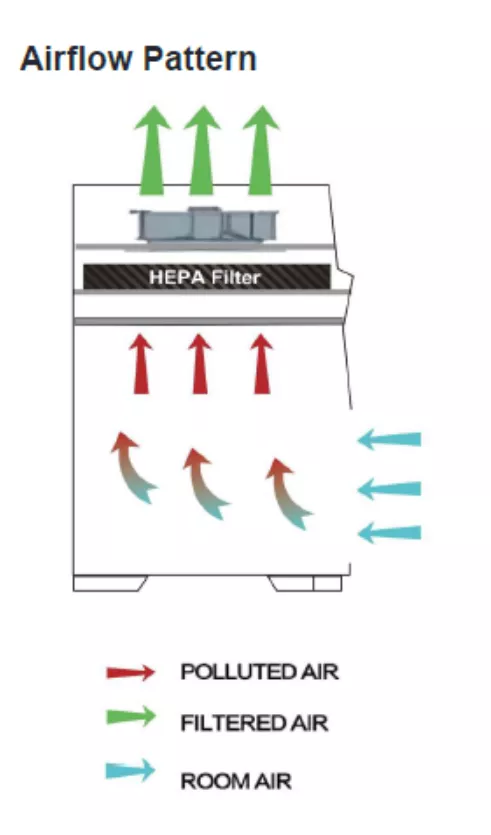
WHY SCITEK
- 18 Months Limited Warranty
- Help meet ISO, FDA, CE quality assurance guidelines
- 1-2 Days Handling and 7-30 Days Shipping
FAQ
What is a class I biosafety cabinet?
A Class I biosafety cabinet is a ventilated enclosure ensuring both personnel and environmental safety. It features an open front with inward airflow for personnel protection and HEPA-filtered exhaust air for environmental protection.
Difference between Class I and Class II safety cabinets?
Biosafety cabinets fall into three classes: I, II, and III. Class I offers protection for the user and surrounding environment, but not for the sample being handled. Class II provides protection for the user, environment, and sample, and is further categorized into four types: A1, A2, B1, and B2.

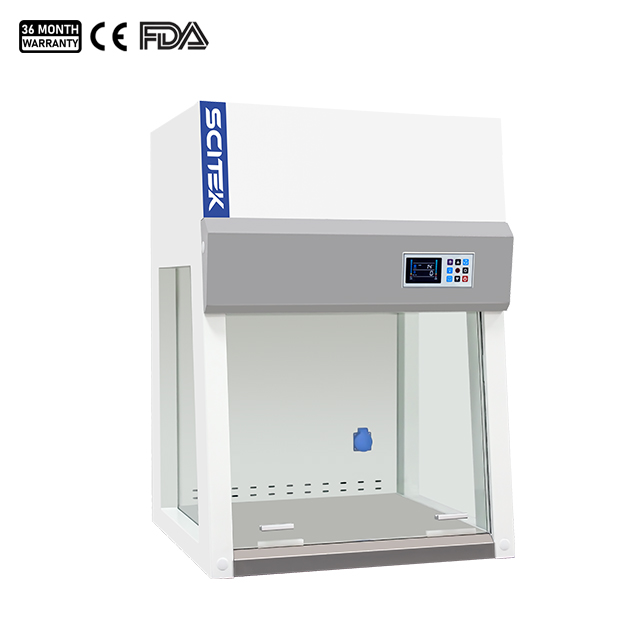
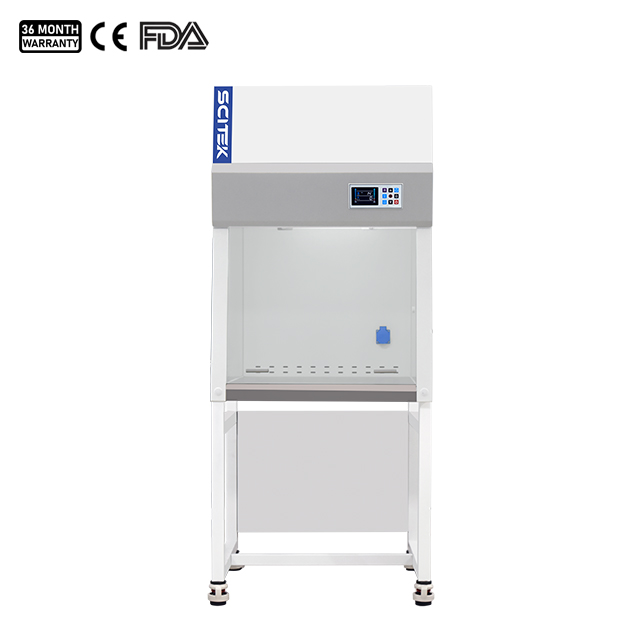


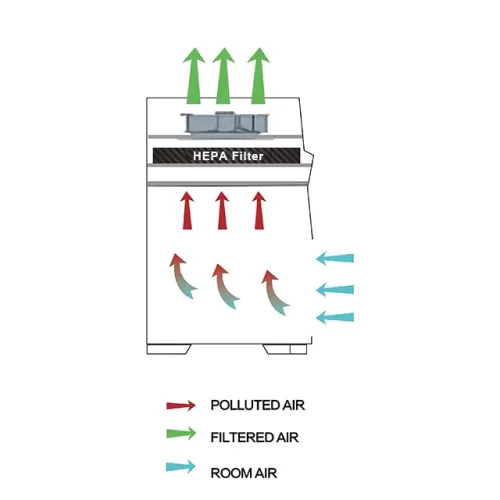
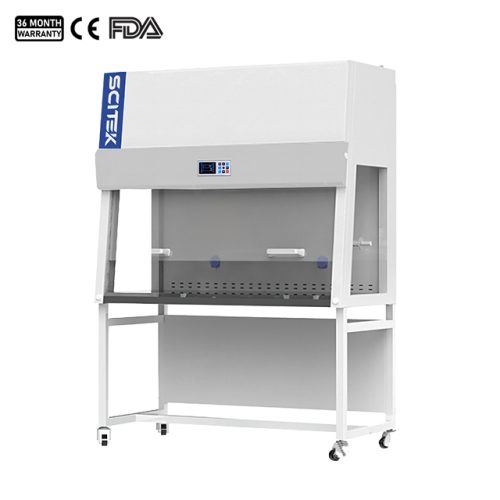
Get Social